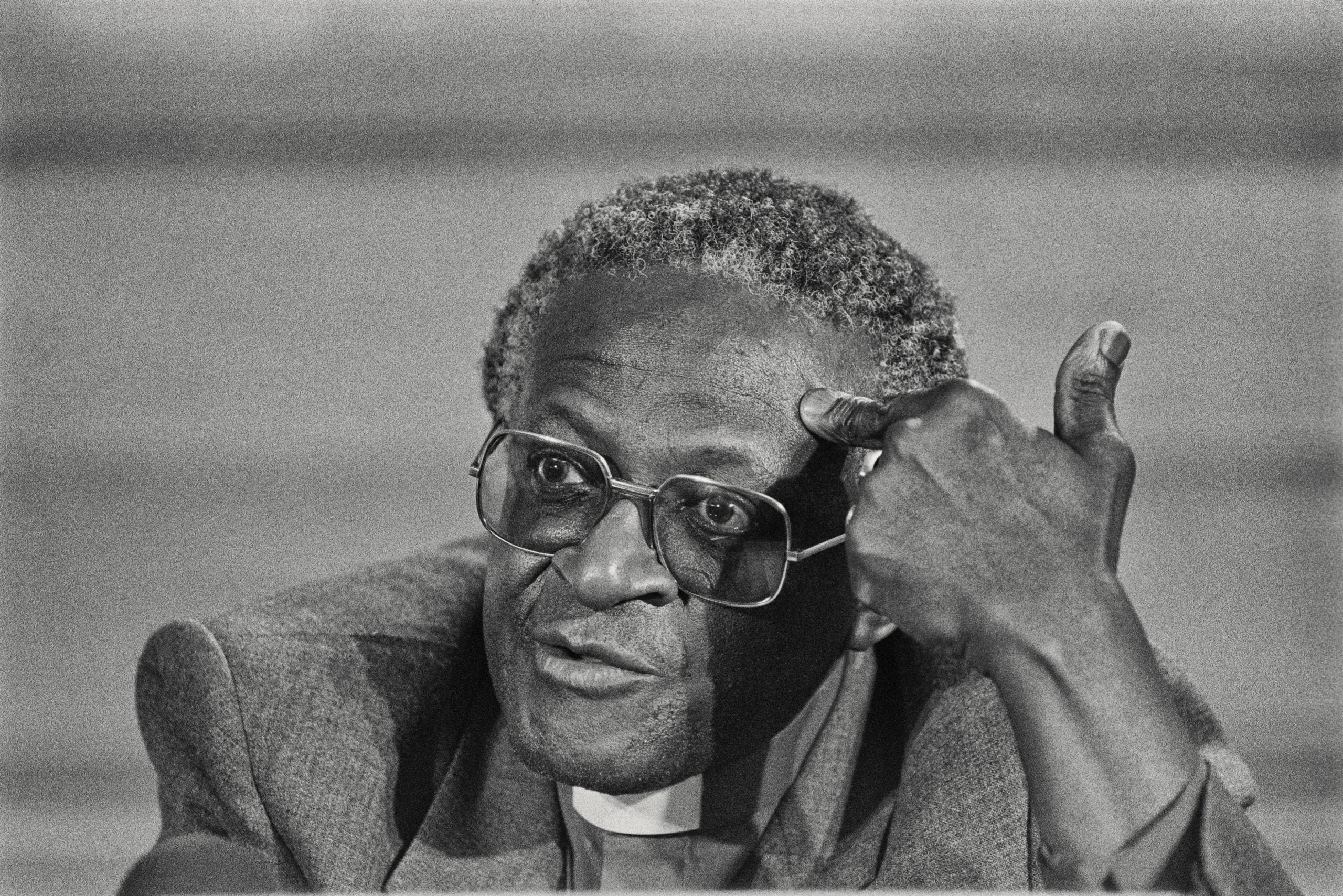
Archbishop Desmond Tutu, anti-apartheid hero, racial justice and LGBT+ activist, and Nobel Peace Prize laureate died peacefully in Cape Town. He was 90.
His death was announced by South African President Cyril Ramaphosa, on Sunday, calling Tutu “a patriot without equal… A man of extraordinary intellect, integrity and invincibility against the forces of apartheid.”
Tutu has had ailing health since birth. He was diagnosed with prostate cancer in 1997 and has been hospitalized several times since 2015.
Desmond Mpilo Tutu was born October 7, 1931 in Klerksdorp, South Africa. He was the only and middle son of three children to a cook and a high school principal. He was often called by his middle name “Mpilo” meaning “life”—a name given to him by his grandmother after the death of his elder brother who died in infancy.

Tutu became a teacher before entering St. Peter’s Theological College in Rosettenville in 1958 for training as a priest. He was ordained in 1961 and six years later became chaplain at the University of Fort Hare.
He is best known for his anti-aparatheid in South Africa work throughout the 1980s. He was one of the most prominent Black South Africans to speak out against abuses. The Anglican clergyman galvanized Black South Africans from the pulpit. In 1984, he was awarded the Nobel Peace Prize for his tireless and nonviolent efforts. This would later play a key role in the demise of the segregationist policy.
Later, in 1985 he became the first Black bishop of Johannesburg and first Black Archbishop of Cape Town.
In 1990, Nelson Mandela spent his first night of freedom, after 27 years in prison, at Tutu’s residence in Cape Town.
Once South Africa’s decades-long oppressive regime over the Black majority ended, South Africa held its first democratic elections in 1994 with Mandela as its Black president. Mandela appointed Tutu chairman of the Truth and Reconciliation Commission where he documented the terrible truths of the former white rule.
In later years, Tutu became a strong proponent for human rights around the world and took special interest in advocating for LGBT rights and marriage equality.
During a 2013 campaign for LGBT rights in Cape Town Tutu said, “I would not worship a God who is homophobic and that is how deeply I feel about this. I would refuse to go to a homophobic heaven. No, I would say, ‘Sorry, I would much rather go to the other place.’”
He is survived by his wife of 66 years, Leah, and their four children.







